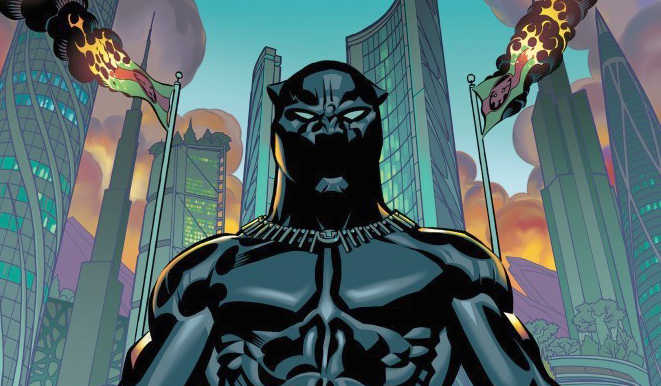BY DAVID BETANCOURT
THE WASHINGTON POST
“Can a good man be a king, and would an advanced society tolerate a monarch?”
Two sentences. That’s all I needed from Ta-Nehisi Coates to get the feeling that the Black Panther, still the black superhero, was in good hands.
In an exclusive to the Atlantic, Coates debuted the first six completed pages of his upcoming 11-issue run on Marvel’s “Black Panther” with artist Brian Stelfreeze. “A Nation Under Our Feet,” the title for his new version of Black Panther, will deal with trouble in the Wakandan motherland, which is usually portrayed as a technologically advanced paradise, an impossible-to-invade utopia.

Coates’ story begins with Black Panther (also known by his Wakandan name of T’Challa) looking down at the people he rules. Hate towards the Black Panther is spreading, for an unnamed reason. He’s called a tyrant. By the fourth page of the preview, vibranium (the industructable metal Wakanda is known for) miners, who the Black Panther considers the “heart” of his country, are trying to take him down. Not everyone wants to be ruled, it seems.
While it is too soon to tell — the full version hasn’t been released yet — it looks as if Coates’s experience as a cultural and political commentator could be applied to the internal Wakandan conflict.
The conflict appears to be heading towards two words that are taking over the Marvel universe in every medium: civil war. In addition to the Captain America-Iron Man civil war in 2006, there were Marvel’s galactic Secret Wars, and yet another one is the subject of May’s “Captain America: Civil War,” which also happens to be Black Panther’s first appearance in live-action film.
For the last few years, the Black Panther has not been featured in his own individual series. Instead, he was one of the Marvel illuminati put together to make sure reality didn’t cease to exist during the Secret Wars. Over that period, the Black Panther was superbly written by Jason Aaron. Aaron’s Black Panther demanded respect without having to ask for it. You knew he was one of the most important heroes Marvel had to offer. Still, Aaron is white, and many in the industry called for more diversity, so Marvel decided to hire a writer of color.
Can a good man be a king, and would an advanced society tolerate a monarch?”
-Ta-Nehisi Coates in ‘Black Panther #1’
Even after just a few pages, Coates’s preview starts to feel special. It’s not just that Marvel has placed a black writer on Black Panther — this isn’t the first time that has happened. (Reginald Hudlin had a run on the character.) It’s that Coates seems to understand the weight of this assignment. It doesn’t feel like some kind of response to the diversity cries. It just feels like the most important black superhero in the world is exactly where he needs to be.
It feels a little like destiny. And that’s what the Black Panther deserves.








